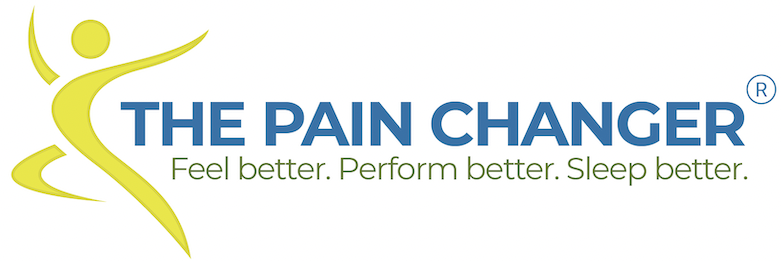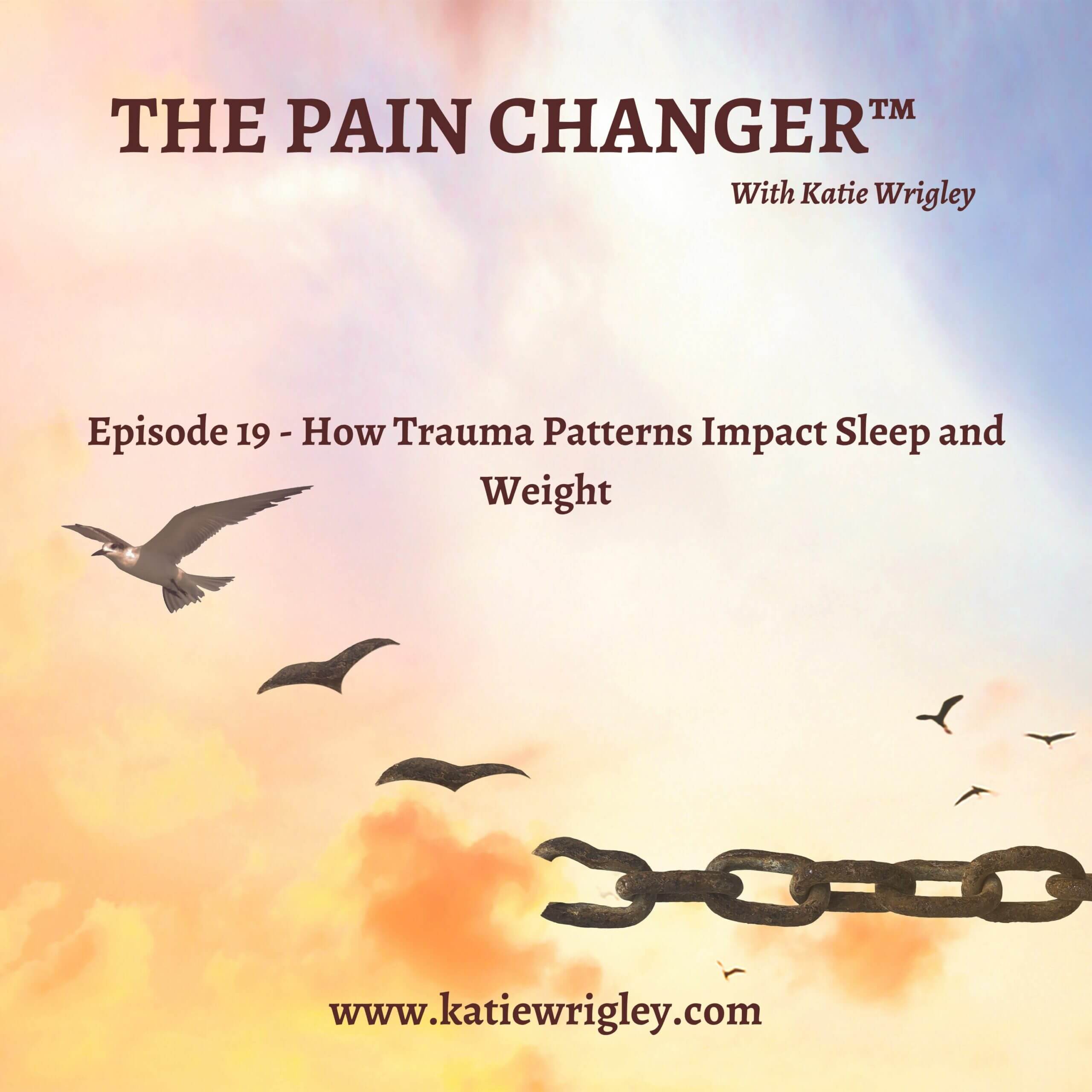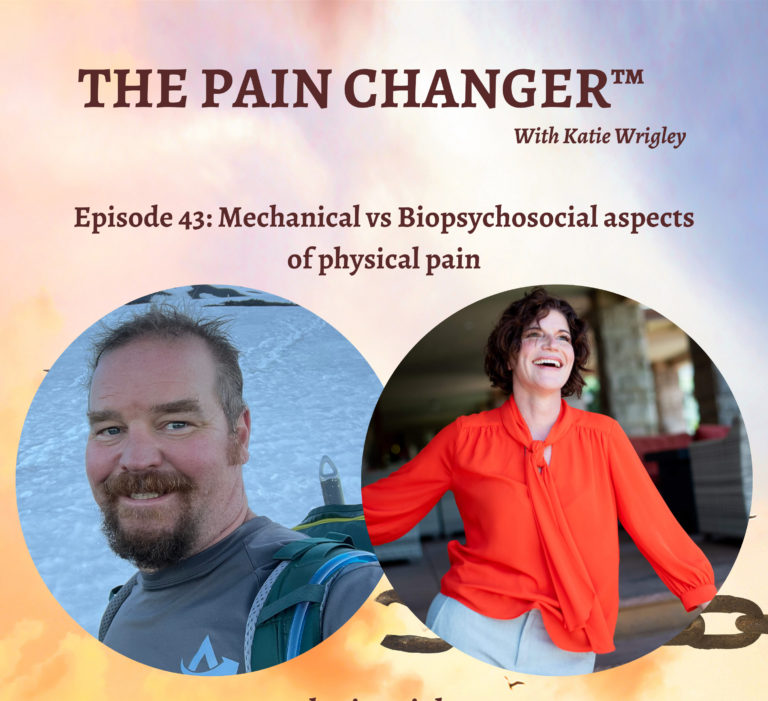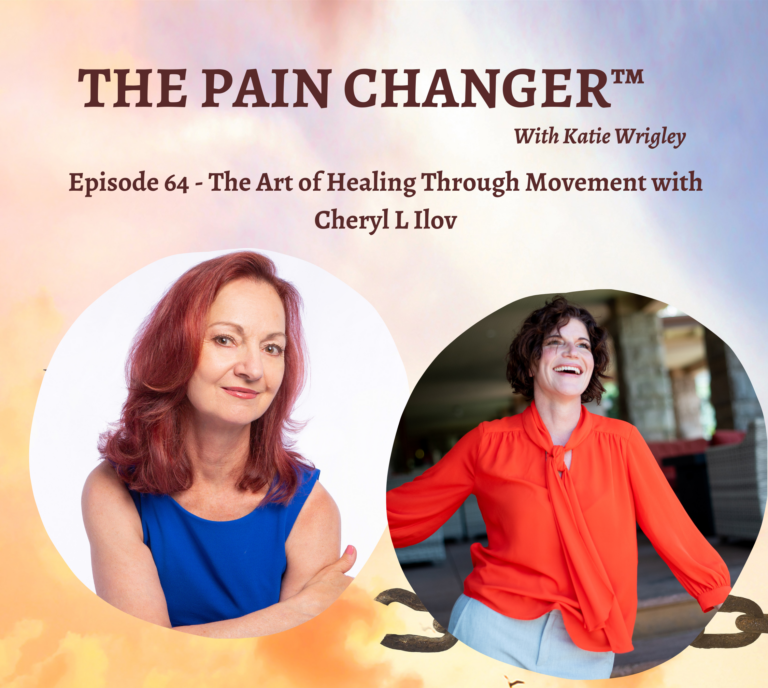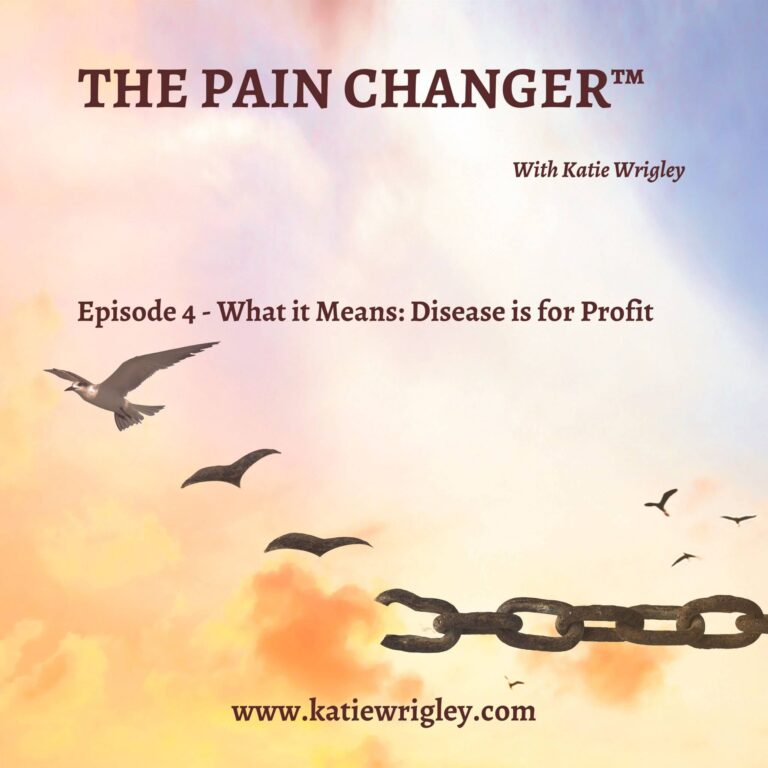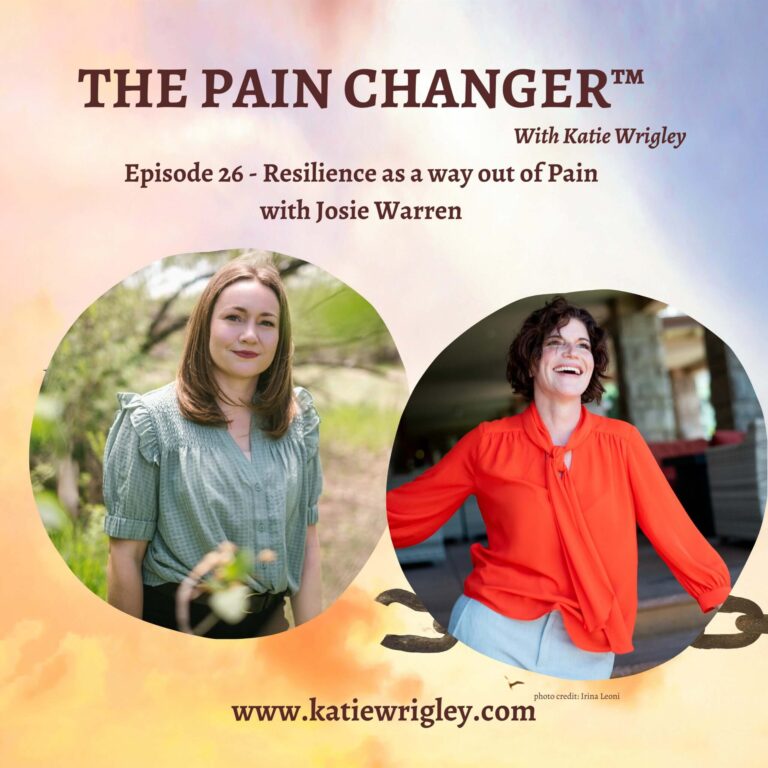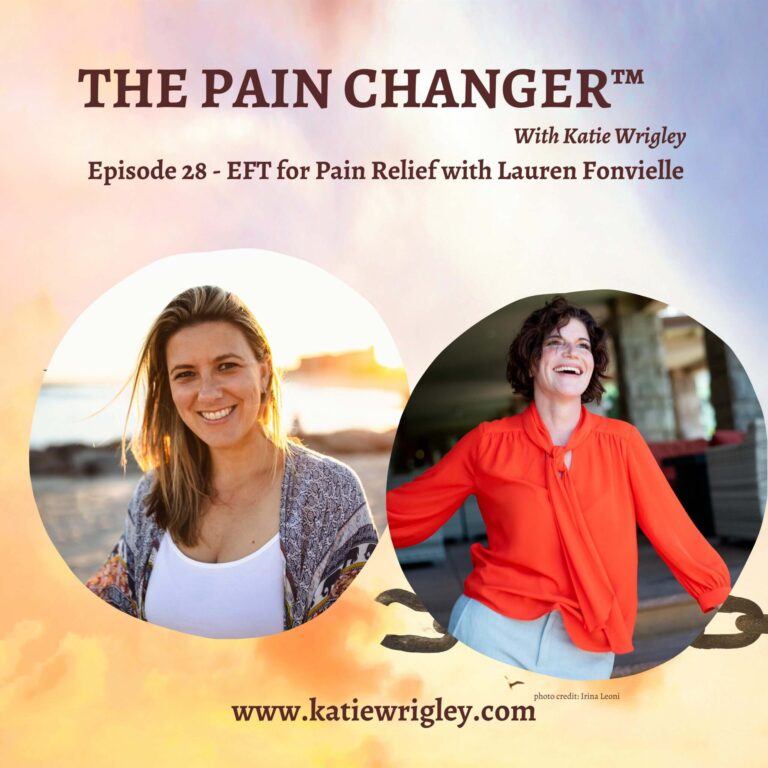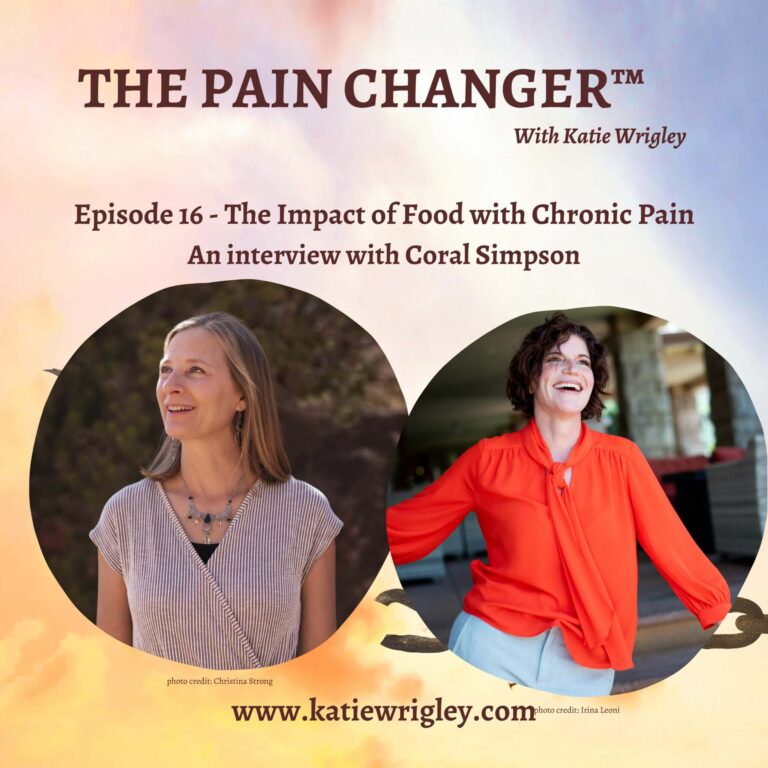Episode 19: How Trauma Patterns Impact Sleep and Weight
Transcript…
In this episode, you will learn:
-
How trauma can impact weight and work against you when you want to diet
-
How and where trauma can impact sleep
-
Ideas of what you can do to help you start to shift those patterns
-
Actionable items you can take into your own life.
Episode 19: How Trauma Patterns Impact Sleep and Weight
This is episode 19 of the pain changer podcast. Over the last several episodes, we took a deeper dive into diet, sleep and various self care techniques that you have available to you to help you shift your experience of chronic pain. Prior to that, we spent some time learning about patterns in general, and those that stem from trauma. This week, I’m tying that together and focusing specifically on trauma patterns that are seen which prevent you from getting the sleep you want or sticking to the diet that makes you feel best. That’s coming up next, so stay tuned.
Before we dive into this week’s episode, I want to call out the listener of the week. This week’s listener of the week is JasonAlb. Who says
“Pain relief with humor. Katie is funny and brings humor to painful situations we face. Katie is committed to helping people wherever they’re at. I’m sure you’ll get some good gems out of the podcast.”
Thank you so much JasonAlb, please send me a DM on Instagram to @coachktdubs. That is @coachktdubs. And let me know you heard me give you a shout. I will send you a gift as my thank you for helping to spread the word that chronic doesn’t have to mean permanent. Before we go into this week’s episode, I wanted to go back and update you on the patterns that I spoke about that I found within myself when I was supposed to be enjoying my first full week off since working full time on my business. As always, please listen for what resonates within your own life and integrate what feels best to you. To recap, first, I found that I had a pattern running where I had to do, do, do all the time, or my business would fail: The perpetual type A. I did a cognomovement session to define what makes me in air quotes too busy. And also to keep a balance and it was hugely helpful. From there, it was incredibly easy to keep a balance. However, I quickly realized a few things. One, I’d forgotten to program in cooking healthy foods. So oops. And two, even with a balance of activities, I still had too much to do. And that’s going to be the case for the foreseeable future. So first, I thought, Well, fuck. Now what do I do? Not willing to give up anything on my plate, so what else can be done? I don’t yet have the extra income to hire people. So how can I address everything that needs addressing without getting sick again? And how long will it take until a couple of tasks will be complete and thus off my schedule. Despite my ball being my favorite way to work through my issues, pain and patterns, sometimes it’s nice to talk about it too. So I started to bounce it off of Shannon. How can I do everything I want to do without leveling myself again when I’m on a tight budget? She lovingly gave me the perspective I needed. First, she helped me identify what has to be done by me versus what I could delegate. My top priority is maintaining my health, which I do via cognomovement, meditation, diet, and movement. None of those pillars can be removed if I want to maintain this level of health. So I could either choose to pay a little extra now and delegate things that don’t have to be done by me. Or I can pay later with lost work, extra copays and treatments. I’m now happy to say that I have a housekeeper who can come once a month, and I have help to help me keep up with my yard at a super reasonable rate. My schedule is still super full, but it is also totally streamlined, keeping priority number one in mind, my health. Since I don’t have an answer to how long it will be before one of my tasks is complete. It is best for me to simply lower the amount I have to do directly so that I have a sustainable workload. This feels doable, and my body is reflecting this new ease. I had noted as I was sorting through some of what I found that my shoulders had started to feel a little tight and also achy. Once I found my path, that tightness went away again. And that’s my key and your key that you’re on to whatever is bothering you.
You may recall during my first few episodes, I mentioned the four areas of impact, where you can directly raise awareness to help shift your experience with pain and start to find what helps and hurts your pain. There’s also a free ebook you can download from my website to start to explore those areas on your own. Just to recap, those areas are mental, emotional, physical and verbal. The past four episodes have touched mostly on physical with a focus on diet. The other pieces that Dr. Morrell spoke of in Episode 17, sleep and self care, those will fall into physical, mental, and emotional, and even verbal with some self care. I want to start connecting those areas to the content of the show to help make it more applicable. Over the next several months of content, I’m going to be exploring those areas with various guests, I hope you’ll stick around and join me too. I’m not a sleep expert or a diet expert for that matter, which is why I bring other experts into my show to take these deeper dives into the why with us like Coral and Lynne did with diet. I am looking for a sleep expert to join me so if you know someone, hook me up, please. As such, though, I simply want to tie the episodes on trauma patterns into the patterns around diet and sleep to help you start to correlate more of the connections on your own.
As I learn more and explore more about cognomovement, both for myself and my clients, it became clear that I was going to be a lifer. There have been so many surprises around the correlations I found within my own patterns and body pain. One of those that really stands out to me were those I found that were around my eating habits. The thing that surprised me the most was that I wasn’t alone in those habits, or in the shame I had by trying to hide them. I had what I would have considered a weight problem for most of my adult life. I’ve always been heavier than my friends, in large part because I was a swimmer growing up. So I had a lot more muscle than a lot of my friends. My young brain interpreted that to mean I was bigger or fatter than my friends. I remember being in grade school looking down at my thigh, which was twice the size of the girl sitting next to me, mind you, I was also a lot taller than her. But again, my brain had already heard all the body shaming programming that was rampant in the 80s. And I recall feeling uncomfortably big. Then I went and kicked some poor boy in the balls to offload my misery. Sorry, Tim. I never spoke of it after that, not to my parents, not to anyone, not until recently as I healed enough to start to examine these patterns. But I kept scrutinizing the legs and bellies of women I saw in real life and in movies. At a very early age, I bought into this ideal body type that used to rule everywhere we liked and still does. The body type that will never be me unless I want to invest 1000s of dollars in painful plastic surgery. And while I strongly feel that every person has the option and freedom to do whatever you want to do with your body, so you feel comfortable and sexy. Personally, I have less than zero desire for any elective surgery for myself.
In my early 30s, I decided that I would allow myself to age naturally, however gracefully or gracelessly, that was going to happen. I decided in that moment, as I sat across from a beautiful colleague of mine, who was suggesting that I get in front of it and start getting Botox now, before more skin and parts started falling. Immediately as she suggested that I realized that was probably not a safe treatment based on how sensitive my body is. I could just see it, some giant knot of Botox right smack dab in the middle of my forehead, instead of this beautiful smooth forehead. And I would have to write out that gian knot for however long the Botox treatment lasts, instead of having a nice, smooth, expressionless face. Again, I don’t fault or judge anyone else in what you do. But my face is super expressive. And I never want to change that. So that’s when I decided I wouldn’t risk it with treatments that could change that or potentially change the parts of my face that I love. You would think that meant I felt liberated, right? Nope, not at all. I was scared. It had actually raised my anxiety level about aging. I had taken away their surgical options. I wasn’t engaged in self care yet. And I had no idea how this was going to play out over time. So those patterns were added into my already overflowing bag that could have actually been labeled as shit I do not want to deal with. Even though I didn’t want to do anything surgical, I still wanted to look good. And I didn’t think I looked like much to begin with. It’s only been in recent years as I’ve learned to love myself and embrace the person I am that I’ve started to see the beauty in myself that others have commented on over the years. The hardest one for me to face and accept was my body. I knew I had great hair, and I had paid a shit ton to keep it that way. I knew I dressed really well, and I can make my body look pretty awesome and disguise the areas I didn’t like. But there was always a grimace when I looked in the mirror. I would notice the toned tan leg of a friend just like I did in childhood. Except now I felt more deeply how much bigger I was. And honestly, I was bigger than other people and it wasn’t muscle anymore. When knee high boots came back into style, I was crushed to realize my legs were too big for regular boots, I needed the plus sized boots, and holy cow that impacted my self perception in a really negative way. While I continued to beat myself up for being fat, I would also admire the curves in friends of mine, and even feel jealous at times that they were also what could be considered overweight, but they were happy, unlike me, and seemingly totally fine in their body. I wanted what they felt, yet I had no clue that it was an internal switch I would want to find and no diet in the world can find it. I tried diet after diet. South Beach, keto, a balance with carbs, protein fat, I think that was called the zone back in the late 90s. Anti Inflammatory diet. Vegetarian, I tried it all except vegan, I had a hard time with that. The weight wouldn’t really fluctuate much. I could get a lot more toned, and my clothes would fit looser. But I just didn’t understand why I was struggling so much. My body constantly haunted me right up until my first year in Colorado when I lost 45 pounds in six months between the altitude and my stress levels. Plus, when my pain goes up, my appetite goes away. And those days in Colorado were riddled in pain for me.
Enter cognomovement: In a weight loss class, I first took with Liz and Bill of the cognomovement team. Then when I ran myself last fall, my understanding of weight completely shifted and I started to understand how complex weight can be. It’s not just a matter of calories in calories out. Yes, that basic math will serve you. But there’s so much more that goes into your weight. For those who are sexually assaulted at any age or assaulted in any way, you will often feel more secure and safe in a larger body. The smaller body may be what you consciously want but you feel safe in a larger body. Until Liz posed the question of what is right about my body, I would have listed everything I felt was wrong with it. But starting to view what was right? Yes, I certainly recalled being both depressed and comforted by the scale. A thought like “Oh, no one will want me at that weight” kept me feeling safe, and also not at all desirable. But safety was winning, so I kept eating in ways to keep my body bigger.
Some of the most common reasons we overeat have been touched upon in other episodes, and I want to go back to them in more detail. Feeling unfulfilled is something that drives us to eat. More fulfillment is not something you can find in your refrigerator or cabinets. Not unless you realize one day that you’re meant to be a chef or a cook and you want to make delicious food, then yeah, maybe food will then fulfill you within your new career. But not by consuming all of it yourself though. And in the absence of any idea of what truly brings you joy and lights you up and makes you feel totally in flow with who you’re meant to be. No food in the world will find that for you. You can eat all you want, and your belly will temporarily feel full. If you’re eating food meant to be craveable, like Lynne spoke about last week, you’re just going to continue to blindly eat until you run out. Regardless of how full you may feel. The deeper unfulfillment and hunger to be fulfilled, won’t be touched.
Anxiety is another big culprit of overeating. When your belly gets overly full, it will calm you down temporarily. Your energy goes into digesting and breaking down the food and it temporarily goes away from whatever is making you anxious. One of the patterns that came up when I ran my own class around weight loss was connected to a feeling of either being unworthy of self care, or deserving of being unhealthy or potentially not being good enough to get healthy. Those are all essentially saying the same thing. You’re right. But when I ran the prompts for the cognomovement sessions around this idea, people connected to them differently. So I wanted to listen again. Do any of those resonate with you? Again, It’s being unworthy of self care or feeling that you deserve to be unhealthy, or potentially not being good enough to get healthy. Yeah, they resonated with me too. Especially not being good enough, there have been layers in this one for me that I will continue to address and delete. When you’ve been abused, oftentimes your abuser will make it your fault, which is not at all true. It is not your fault, you were abused. An abuser doing that to you will also enhance the idea that you aren’t worthy of good health or love, or anything enjoyable in life. And it’s wrong. And it’s also a pattern that may need to be deleted
Lynne mentioned a few times in last week’s episode that it’s not hard to make a change. And she’s right. It’s just a decision. The thing that makes that decision a difficult one is when you have a pattern running that goes against what you really want for yourself. Lynne also pointed out that she sees people caring more about what you’re feeding your dog, and scrutinizing the labels of dog food, but not giving your own food the same level of scrutiny. She even said that you basically say, in that moment, that you are not as worthy of your animal of caring for yourself, of parenting yourself. And that, my friend, is total fucking bullshit. You do deserve the same level of care. And more than what you give your pet. Your pet wants you to be healthy and happy too. But if you have a pattern running with intense guilt or remorse, or you’ve been given the message that you aren’t good enough, or you’re lacking, then you now have a robot preventing you from making the decisions that are in your own best interest. You will most likely feel something like resistance if you start to tell yourself, you’re enough. In fact, try that with me now. If you’re willing, and if you can do so again, please don’t if you’re driving, or you can’t close your eyes or look down. Do it later. But if you can do so, look down at your body and repeat. I am enough. I am enough. Do you feel resistance? Or do you feel ownership? At other times when I’ve done that, I feel resistance. Today, as I tap in, I feel ownership, like I am worthy. And enough today? And should I find other layers that prevent me from feeling that way in the future, I’ll just delete it like I did with the layers before this one. But right now, I am totally embracing and feeling deeply that I am enough. I hope you are too. But if not, please keep working on it. Because you are enough. I can help.
There are also patterns connected to the time of day with food or to a certain event. For the longest time when I traveled alone, I wanted sugar. I’m still not sure why actually but the urge went away as soon as I realized that I had that craving. So I’m just going to go with that. And if I find I crave sugar on my next trip, then I’ll spend some time on it to change it. At this point, I trust myself not to excessively avoid my stuff. And also not to worry about it when it’s not currently in my way or helping me get in my own way, which is a much more accurate way to say that. Once upon a time, and for the longest time. getting really tired at night right before bed would make me want to eat. This is actually a great time to segue into trauma patterns that come out in our attempts to sleep. My body’s reaction at that time that was telling me to eat was an attempt to wake up rather than lean into the sleepiness and let my body relax and rest. This was due to me not feeling safe, and also led to realization that I have a long history of not feeling safe. Of course, I didn’t feel safe. I was threatened as a small child, and my abusers threatened my parents too. Well, they didn’t threaten my parents directly. They threatened me, to hurt my parents. And I viewed my parents as my protectors in early life. So this took some time to undo. Only recently has that changed, my sleep has improved and feeling safe. For years though. I would take my cannabis edible to help me get sleepy. When it kicked in instead of allowing it. My subconscious drove me to eat. And I’m sure that cannabis creating the munchies didn’t really work in my favor for this pattern either. But I would then eat and wake up. Plus, eating that close to bed really disrupts sleep. So overall, my quality of sleep was crap. Now my sleep is a lot better, but I still have some more work to do to keep healing that initial trauma. I did a couple of cognomovement sessions around using cannabis for sleep and also around sleep hygiene. Since establishing my new sleep routine, I fall asleep very easily most nights. Between a few physiological changes due to the joys of perimenopause, yes, that’s sarcasm, and a brain that likes to immediately engage when I wake, I do still wake up in the night, however, I get plenty of sleep and I get quality of sleep. I can easily verify this both with my energy levels and by the data from my aura ring.
My next step will be to start reducing my cannabis dose as I continue to heal more of the trauma and get it out of my body and subconscious mind. I’ve taken it for a long time. So it will be a rather slow process to allow my brain and body time to take over fluctuating my sleep hormones, rather than depending on cannabis to do it for me. Right now this works for me. But I do want to be able to sleep just as well without any cannabis. And I know I can do it now. If I plan properly, and I go into it with patience, insomnia is a symptom of trauma too as I just mentioned, if your subconscious mind doesn’t feel safe, you won’t be able to sleep. You are obviously vulnerable when you sleep. There have been studies that show when you sleep in a hotel, you get drastically less restful sleep. And I want to say it cuts the quality in half, but I’m not 100% sure on that. Suffice it to say it is a significant difference. Because when you’re in a hotel, you don’t know who else is in there with you. Are they safe? Are they violent? How good are the locks? Is the hotel personnel ethical, and will they not try to come in while you sleep? Even throwing that super strong lock across the door. I still don’t sleep in hotels. It’s that simple. You don’t feel safe, and your mind will not want to sleep. Or the ways that trauma can impact sleep is in the form of nightmares or night terrors. I’ve had those too. Especially those with severe PTSD, your mind keeps reliving the trauma or traumas in the form of nightmares, further disrupting your body and mind. It makes sense too when you think about it. Sleep is a time your body’s restoring itself, it resets your systems and helps you prepare for the next day. If you have energy stuck in your body, such as trauma, it’s going to disrupt those systems from resetting. Everything within your body is linked. Nothing is running in a silo. The flip side of symptoms with excessive sleep can also be observed coming out of trauma. There are reports of people developing narcolepsy, which is a condition where you fall asleep uncontrollably, with trauma and more specifically, trauma to the brain. Those struggling with severe depression will also want to sleep excessively as your mind starts to use sleep as the escape.
Here’s the part of the show where I started to tell you what you can do about it. You still with me? Awesome. As usual, the focus is going to be on raising your awareness. My hope is that you’re seeing more correlation between your own past experience with trauma and various patterns you may see in your own eating and sleep habits. Start to journal about what you notice. If you struggle with sleep, start to look at what you’re doing before bed. Are you getting a lot of screen time? Do you have blue light blockers? Are you looking at social media late in the night? Don’t forget social media is meant to keep you awake and stimulate you and provoke you. Not the best bedtime activity. Are you relaxing before bed? Or do you go directly from whatever your tasks are right into bed? When you’re eating dinner? How close to bedtime is eating? What are you eating? Transitioning back into dietary patterns again, start to pause when you feel compelled to go to your kitchen. Are you actually hungry? Or maybe you’re bored or anxious? Pay attention to what is driving you to the kitchen. If it’s legit hunger at a decent time of the day, aka not on your way to bed for the night, then eat. If it’s something else, then I invite you to examine it with curiosity and see what’s there for you. Why do you want to eat if you aren’t actually hungry? And what is the food calling to you? What is that food? If it has sugar, or lots of ingredients you can’t pronounce? Then it’s probably created to make you crave it. It’s not something your body actually needs. You can also create affirmations that are in line with what you want to do. Affirmations like “I am enough” or “I feed my body fuel, not junk”. As a reminder affirmations work when they resonate with you, and you put them someplace, you can’t avoid seeing them multiple times a day. So you actually read them out loud when you see them. If you reject the idea that you’re enough, or you reject your affirmation, they won’t do anything to help you. So start with what resonates with you and build from there. Reach out if you want some help.
I’m sure it’s no surprise to you that cognomovement is my favorite way to change these patterns. Cognomovement is how and why I have a healthy body image today. And it is how I was introduced to a healthy body image. And by the way, I do still need the bigger boots but I’m totally okay with it now. And I’m not overweight anymore either. I just have big legs. I may still want to gain strength and tone up parts of my body. But I love my body, and I’m good with it as it is today.
Cognomovement can also help sleep too. I worked with one client recently who has a long history of needing to be up and on in the middle of the night, meaning the phone rings, they need to have their mind engaged immediately. They have been a first responder for decades. Now they don’t have to be up and on in the middle of the night, the ability to wake up and be instantly wide awake and tuned in doesn’t serve them. In one session only one session, that all changed and they sleep like a baby now. We also made sure to keep that ability for the few times their phone may still ring in the middle of the night. We just made it so in the absence of a ringing phone, their body and mind will stay asleep. All of that was in one cognomovement session. 90 minutes actually think it was less than 90 minutes. I’ve also used it personally to help create a good sleep hygiene routine for myself and I plan to do more sessions as I step off my cannabis dose to help me transition.
My hope is that you see more correlations between your past experiences and current behavior. And I hope you are examining what you see with curiosity and not with judgment. You are simply looking for data to help raise your awareness so that you are now empowered to decide what you want to do about it. Thank you for joining me again this week.
Next week, I have another really cool guest to introduce you to: mindset coach, author and creator of a process called the game of 10. Steve Barton will be joining me to talk about his work and how it can impact those in pain, especially emotional pain such as anxiety and depression. Come join me again next week. And until then, please keep spreading the word that chronic doesn’t have to mean permanent.
